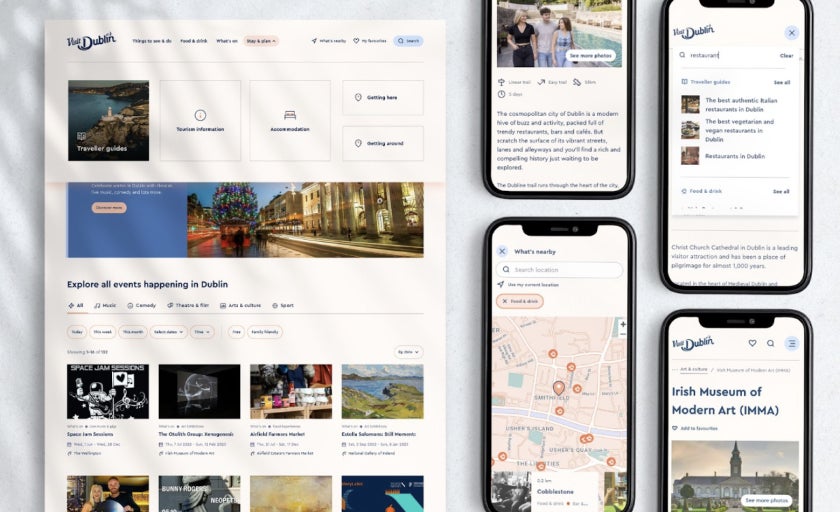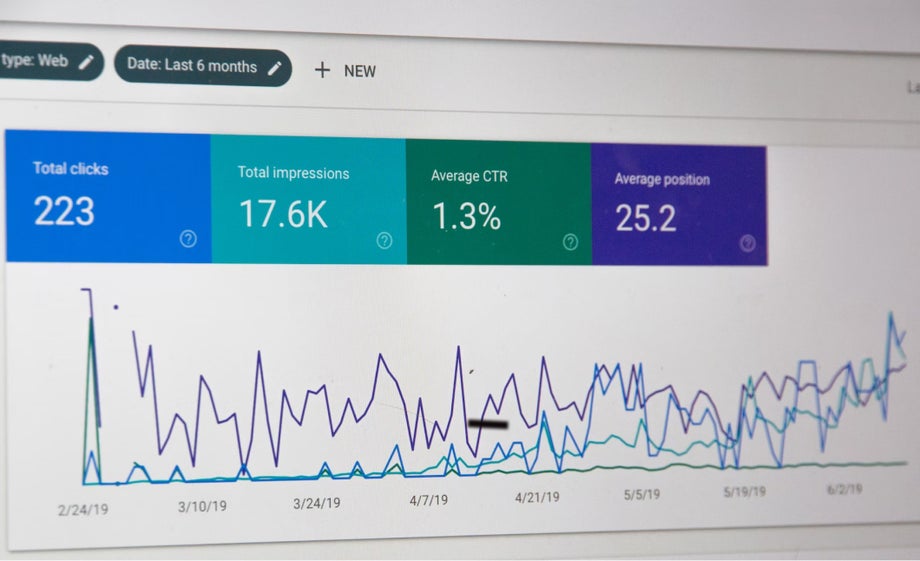
01.02.20247 mins read
One of the many perks(!) that come with being a CTO is the knowledge that you will be asked to give your opinion on what the trends in technology will be for each new year. As planning for 2024 kicks into gear, the eyes in every room will turn to you, and yes, even on Zoom, when questions about priorities and strategies are raised.
And so here's my answer.

Was 2023 AI's year? Yep, along with Barbie and Oppenheimer, AI was definitely the talk of the town. While not new, it was the year when the AI landscape shifted dramatically, with tools like ChatGPT imploding and making waves not seen since the first smartphone landed on the market. Everyone, especially tech giants like Microsoft and Google, jumped on the bandwagon, and it seemed as though there was a new AI tool or platform each week. Almost in equal measure, there was commentary and lawsuits as people argued about ownership, IP and whether or not we were signing humanity's fate as we create an intelligence that one day, depending on who you listen to, may take over the world.
This year, some of this rhetoric will calm down as organisations consider how to transition from AI theory to practical implementation. The volume of tools and ways to use AI can be overwhelming, and I often get asked where companies should start. I recommend putting together an AI usage policy and laying down the specific ways employees can and cannot use AI within your organisation.
The next step is to determine, by reviewing existing workflows and processes, where AI would have the most benefit. There is no point in investing in a tool if what it does is not really an issue for you and your employees.
For example, do you struggle to qualify leads based on interest level? Can you use AI to analyse all the data you have to follow up on that lead? Or do you need help identifying what customers you need to work harder to retain? Can AI be used to notify you when a client's behaviour changes so you might need to check in with them?
Remember when GDPR was all everyone was talking about? Well, soon, the EU Accessibility Act 2025 will be top of mind. From June 28, 2025, digital products must be accessible to all, and similar to GDPR, non-compliance with the law will result in fines and legal repercussions.
If you still need to prepare for this new requirement, now is the perfect time. Companies should run regular accessibility audits, educate staff, implement enhancements, and continually test.
Accessibility is a fundamental principle here at All human. Our designers and engineers are trained in accessibility, and the digital assets we design and build all meet accessibility requirements.
To learn more about accessibility and how to make sure that your site and applications adhere to regulations, I highly recommend taking a look at:
How to make your site accessible
Making the website accessible and addressing common errors
We are also hosting our next webinar on the topic. Sign up for our newsletter and be the first to register for it.

While AI is the talk of the town, that does not mean data is any less essential. Apart from its inherent value, data is inextricably linked with AI and how you will use it, reinforcing the need for a comprehensive data strategy.
What does that look like?
It should include considerations for:
- Observability, and by this, I mean knowing all about where your data is coming from and being able to confirm its quality via:
- monitoring
- lineage
- traceability
- security
- compliance
- auditing
- logging
- management
- scalability
- data security
- privacy.
- Observability, and by this, I mean knowing all about where your data is coming from and being able to confirm its quality via:
Thanks to Netflix, Amazon and others, consumer expectations have permanently shifted, making personalisation now mandatory for engaging online experiences. What does that mean for brands? It means that people coming to your site or app expect the personal touch when looking for a product, returning an item, or using self-service tools. If this is not the current experience of your brand, in the words of Jean Luc Picard, make it so.
Speaking of Amazon, they recently made their ML-based recommendation system available for purchase to help companies of all sizes create real-time personalised user experiences at scale. Amazon Personalize will make it easy for developers to build applications that deliver a wide array of personalisation experiences, including specific product recommendations, personalised product re-ranking, and customised direct marketing. It is worth looking at this tool if enhancing the personal CX is on your radar this year.
In one of our more recent webinars, Think outside the box: Reshape your delivery experience in 2024 through digital innovation, we looked at how brands can improve the delivery experience.
Part of this included adding personalisation to the buying journey.

While sustainability is not a new trend, that it now includes your technology is in some sectors still relatively new. According to Rubicon, a leading waste and recycling technology company, there are 3 ways to look at sustainability in technology.
#1 Substitution
The technology fosters a shift from non-biodegradable to biodegradable materials in its production. It also replaces non-renewable with renewable resources.
#2 Prevention
The sustainable technology prevents deterioration, contamination, and other negative environmental impacts through its use or production.
#3 Efficiency
The technology is efficient in terms of its use of energy and resources.
Now is the time to take stock of which of these, or all of them, will be your focus for the year and then decide on a course of action.
Look at any cloud infrastructure and use its carbon calculator tools to see where you might be able to make reductions. Ask yourself
- Are you holding too much historical data that using up unnecessary resources?
- Is data being replicated and duplicated unnecessarily?
- What controls are in place regarding the provisioning of new infrastructure?
One thing to note is that it is rising consumer awareness and preference for environmentally-friendly products and services and by extension brands that is primarily driving this trend. Shoppers - in both a personal and commercial, are increasingly selecting to spend their money with brands that are taking an active stance on the environment. We’ve noticed an increasing number of clients are looking for an agency that itself promotes sustainability in its operations. And of course there is recent legislation such as the Corporate Sustainability Reporting Directive (CSRD) which modernises and strengthens the rules concerning the social and environmental information that companies have to report. It means that a broader set of large companies, as well as listed SMEs, will now be required to report on sustainability. The first companies will have to apply the new rules for the first time in the 2024 financial year, for reports published in 2025.





